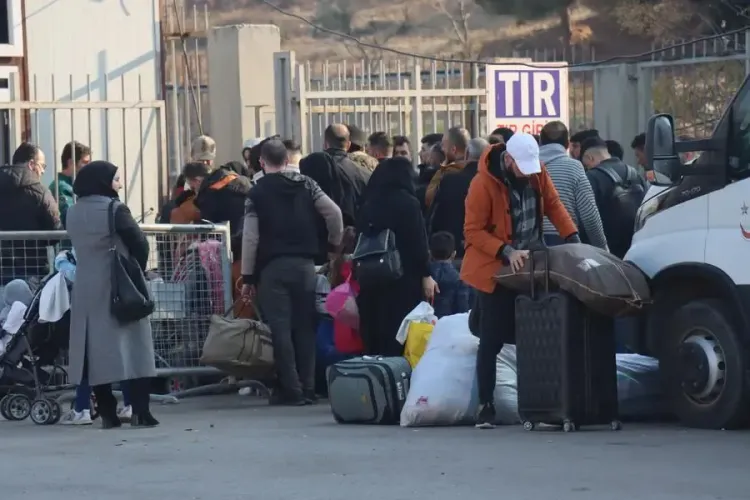Over 270,000 Syrian Refugees Have Returned Since Assad's Fall, More Anticipated: UNHCR Representative

Synopsis
Key Takeaways
- Over 270,000 Syrian refugees have returned since December 2024.
- 27% of refugees are willing to return within a year.
- Significant challenges remain for returnees, including housing and jobs.
- Humanitarian organizations face funding shortages.
- Long-term investments are needed for infrastructure and support.
Damascus, Feb 12 (NationPress) More than 270,000 Syrian refugees have returned since the collapse of Bashar al-Assad's regime in December 2024, with over a quarter of those remaining abroad indicating a wish to return in the upcoming months, according to a senior official from the United Nations High Commissioner for Refugees (UNHCR).
Aseer Madaien, deputy representative of the UNHCR mission in Syria, stated on Tuesday that following the coalition's overthrow of al-Assad's government on December 8, there has been a marked increase in the number of refugees returning, signaling a change in migration trends.
"We have documented the return of 270,000 Syrian refugees since the onset of this political transition," Madaien informed the Xinhua news agency. "Should the availability of essential services improve, we predict this figure could increase even more substantially."
A regional UNHCR survey revealed that 27 percent of Syrian refugees surveyed expressed a willingness to return to Syria within the next year—an impressive rise from just 1 percent the previous year, she noted.
"This increase is significant and indicates a growing confidence among Syrians about returning home," Madaien observed.
While the rise in returns is encouraging, numerous refugees remain cautious due to ongoing challenges.
Madaien pointed out that significant barriers include a lack of housing, deteriorating public services, and limited job opportunities.
"Many Syrians have no homes to return to," she remarked, adding that some internally displaced individuals who returned found themselves without shelter.
Moreover, humanitarian organizations are facing difficulties in addressing the needs of returning refugees. "The funding crisis poses a major challenge. It is essential to ensure that returnees have access to dignified living standards," she stated.
Discussing the Syrian refugee camps in neighboring nations, the UNHCR representative explained that the future of the camps hinges on the support provided within Syria.
"The closure of refugee camps will only take place once conditions improve in Syria," she clarified. "Currently, we have not observed any neighboring country actively advocating for large-scale refugee returns. They still believe this process should be gradual."
According to UN statistics, over 13 million Syrians have been forcibly displaced due to more than a decade of warfare in the country. UNHCR officials have stressed that ensuring safe and sustainable returns will necessitate long-term investments in infrastructure, economic recovery, and legal protections for returnees.










